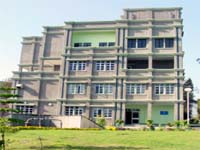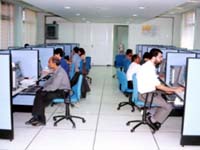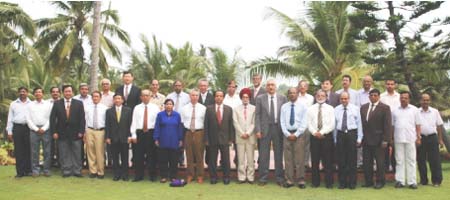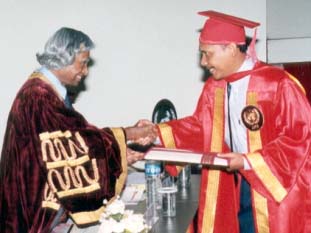Centre for Space Science and Technology Education in Asia and the Pacific (CSSTEAP) Affiliated with the United Nations
In resolutions 45/72 of December 11, 1990 and 50/27 of December 6, 1995, the United Nations General Assembly endorsed the recommendation of the Committee on the Peaceful Uses of Outer Space (COPUS) that regional centres for space science and technology education should be established in developing countries on the basis of affiliation with the United Nations. A consensus emerged within the international community that if effective assimilation and appropriate application of space technology are to succeed in developing countries, efforts must be made on a regional level for the development of necessary knowledge and expertise in various domains of the space technology field and its applications.

CSSTEAP Hqs, Dehra Dun
In 1994, a UN team evaluated six countries in the Asia-Pacific region. Based on this evaluation, the UN office of Outer Space Affairs (UN-OOSA) selected India to be the host country for a Centre for Space Science & Technology Education in Asia and the Pacific (CSSTEAP). The centre came into existence on November 1, 1995 with its headquarters in the campus of the Indian Institute of Remote Sensing (NRSA), in Dehradun. In May 1996, the centre signed a cooperation agreement with the United Nations, drawing upon its support, and the Indian government approved the host country agreement in March 1998.

Lab facilities
The mission of the centre is to establish national capabilities in developing countries to design and implement education, research and application programmes in space science and technology. The centre offers post graduate level courses in the fields of remote sensing and geographic information systems, satellite communications, satellite meteorology and global climate, and space and atmospheric science at various host institutes in India (www.cssteap.org). The Indian government's Department of Space has made available its facilities and expertise to the centre in the Indian Institute of Remote Sensing (IIRS), Dehradun for the RS & GIS course; in the Space Applications Centre (SAC), Ahmedabad for the satellite communications and satellite meteorology course; and in the Physical Research Laboratory (PRL), Ahmedabad for the space science course. The RS & GIS course is conducted every year, while the SATCOM and SATMET/space science courses are held in alternate years. The centre primarily organizes post-graduate level courses lasting nine months and workshops and short-term courses in the four disciplines. The centre developed a set of standard curricula towards running these courses, which were later accepted by UN-OOSA as curricula for all the five regional centres. The centre is affiliated with the United Nations and its education programmes can count towards an M.Tech degree at Andhra University, India.
CSSTEAP is administered by an international governing board consisting of representatives of 15 member countries in the Asia-Pacific region (North Korea, India, Indonesia, Kazakhstan, Kyrghyzstan, Malaysia, Mongolia, Myanmar, Nauru, Nepal, the Philippines, South Korea, Sri Lanka, Thailand, and Uzbekistan) and representatives of the United Nations (UN-OOSA) and the International Institute of Geo-information Science and Earth Observation (ITC) in Enschede, the Netherlands act as observers. The executive functions are exercised by the director of the centre. The technical activities of the centre are guided by an advisory committee (AC) consisting of experts from India and other countries. The AC is chaired by the representative of UN-OOSA and reviews all technical aspects such as curricula, technical facilities, and future directions. The AC reports its deliberations to the governing board every year.

Governing Board meeting during GB meeting
CSSTEAP conducts all its educational programmes in close collaboration with one of the DOS institutions and thus has direct access to their physical and intellectual resources. In addition to providing facilities, infrastructure and skilled manpower, the Indian government, through the Department of Space, also provides most of the funding for the centre. Funding for travel grants, tuition fees and student scholarships is mainly provided by the Department of Space, which also manages the centre, on behalf of the host country. Other agencies financially supporting CSSTEAP activities include UN-OOSA, the Ministries of Finance and External Affairs of India, UNESCO, and the UN Economic and Social Commission for Asia and the Pacific (ESCAP) in Bangkok, Thailand.
To date, the centre has conducted 26 post graduate courses: 11 on remote sensing and GIS, and 5 each in satellite communications, satellite meteorology & global climate, and space & atmospheric science. The centre has further conducted several short courses and workshops in the past 11 years. These programmes have benefited some 708 participants from a total of 30 countries in the Asia-Pacific region. In addition to this, about 26 participants from 16 countries outside the Asia-Pacific region have also benefited from the educational programmes.

Dr. A.P.J Abdul Kalam (currently President of India) awarding PG diploma certificate